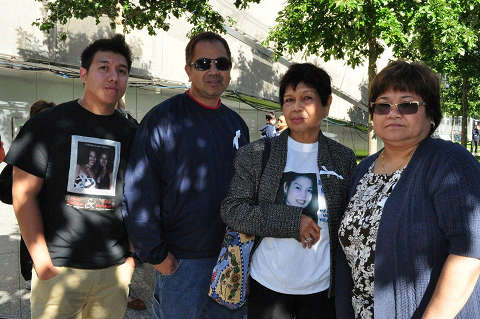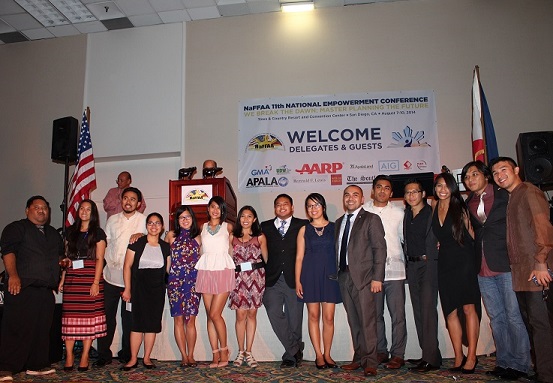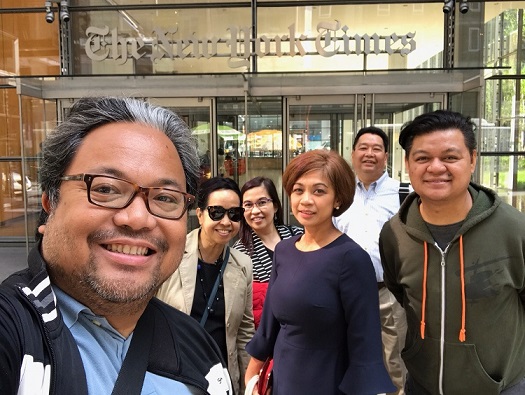Lady Aileen Orsal: Harvard preceptor on what it’s like living around Boston
By Cristina DC Pastor
The first Filipino language preceptor to teach at Harvard University originally aspired to be a journalist. She graduated summa cum laude with a Bachelor of Arts in Mass Communication (major in Journalism) from Cavite State University.
Along the way to getting a higher education, she “fell in love” with the Filipino language program offered by De La Salle University.
She is finishing her PhD in “Araling Filipino – Wika, Kultura, Midya” from said university with her research focusing on the cultural inputs in teaching Filipino language in universities in the U.S.
She is also a former Fulbright Foreign Language Teaching Assistant at Northern Illinois University in Dekalb, Illinois from August 2018 to May 2019 where she returned to pursue an MA in Communication Studies as a second graduate degree.
One year after Dekalb, the title of “first Filipino language preceptor” for Harvard fell auspiciously on her lap.
Instead of being a journalist, she now wants to integrate her background as a communication scholar to teach the Filipino language abroad — a “cultural ambassador for the global community” as she put it.
“I am excited to teach and learn too,” she said when interviewed by The FilAm. “I think it is normal to feel nervous as it is the first time that this program will be offered but I use that feeling to challenge myself to be better.”
The 32-year-old Aileen — also called Lady by her friends — comes from a “very simple yet happy” family from Amadeo, Cavite which is minutes away from Tagaytay City. Her father is a carpenter and her mother is a stay-at-home parent. She has three older brothers, two of them are twins. She married Raymon Carlo Orsal, a classmate in college, in 2017. He will eventually be joining her in their future home in Boston area as she fulfills her job as a preceptor.
“This is the first time I will be living around Boston area and I am really overwhelmed with the city life,” she said. “I live in sort of rural areas both in Cavite and in Illinois so getting used to busier streets is something I am learning these days. The good thing is the public transportation is reliable and I have been meeting good Filipinos around the area who are very kind and indeed, Filipinos are hospitable everywhere. They are always willing to help their ‘kapwa.’”
Throughout the academic year, Aileen will be teaching five language courses: Two for the introductory level and two for the intermediate level which is basically Part I and Part II for Fall and Spring, then another Advanced class to be added in Spring.
The “approach” she will be using is a combination of strategies recommended by the American Council on the Teaching of Foreign Languages (ACTFL) that aims for the 5 Cs — communication, culture, connections, comparison, and communities.
“We are doing a mix of communicative, functional-situational, task-based and other relevant approaches that make language learning more holistic, culturally-relevant, and practical for the learner’s daily tasks,” she said.
Also, she added that she will be leading her students to resources with authentic texts from the Philippines and helping them have Filipino conversation buddies. “These are some of my plans to make their learning more sustainable even after the semester is done.”
She is expecting that learners will come from different levels and background.
“I am sure that through partnering with them and the community around them, their communicative competency will be enhanced and their cultural understanding of the Philippines and the global Filipino perspective will be developed,” she said.
“My role in the classroom is to facilitate that learning, support them in becoming the Filipino language learner they aim for at the end of the semester, and to sustain that motivation even beyond the classroom. Basically, my ultimate goal is for them to embrace the Filipino in them, whether they are heritage learners or totally foreign to the language,” Aileen continued.
She wasn’t aware how many people applied for the position, but she sensed it was a “healthy competition” among many. Her thinking at the time was, “It is a joy whoever gets it and I cannot believe I was selected.”
The process involved the submission of documents and statements from three “recommenders.” An interview for those in the shortlist followed.
“While still nervous in answering questions, I told myself before the interview that I just need to be real and advocate not only for myself but also for the principles and strategies in teaching that I believe are applicable and effective based on my teaching experiences and observations from other classes.”
Aileen submitted her paperwork in mid-April, was interviewed in May, and was given the offer letter in June.
“My joy mainly comes from the fact that Filipino will be offered for the first time in Harvard and that alone is a victory for all of us, whether I get the position or not.”
© The FilAm 2023











